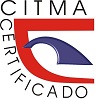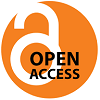El desarrollo de habilidades comunicativas en la profesionalización de los residentes de medicina interna
The development of talkative abilities in the professionalization of the residents of internal medicine
Palabras clave:
estrategia de profesionalización, desarrollo de habilidades comunicativas, residentes de medicina internaResumen
La comunicación interpersonal es un proceso de intercambio de mensajes que propicia la influencia mutua y que no se agota con la transmisión de información, sino que incluye elementos de carácter afectivo, componente este indispensable en la relación médico paciente a partir del desarrollo de las habilidades comunicativas que posean los profesionales de la Salud, pues son las determinantes en buena medida del éxito de las relaciones interpersonales en la actividad. El desarrollo de las habilidades comunicativas constituye un reto en la profesionalización del residente de medicina interna, pues en la práctica médica se observan dificultades comunicacionales, así como en la superación sobre el tema de modo permanente y continuado. El estudio teórico y práctico de esta investigación se sustenta en el método General Dialectico Materialista y en métodos de investigación del nivel teórico, para los estudios bibliográficos de los referentes teóricos y metodológicos del tema objeto de estudio, métodos del nivel empírico para constatar el estado inicial y final del grupo de estudio seleccionado y métodos estadísticos matemáticos con los que se procesó la información. El presente artículo se elaboró con el objetivo de proponer una estrategia de profesionalización para el desarrollo de las habilidades comunicativas del residente de medicina interna. Una vez elaborada e implementada la estrategia propuesta se constató que con ella se perfeccionan vías y formas de superación desde el puesto de trabajo y por ende el mejoramiento del desempeño profesional y humano de los residentes de medicina interna en la relación médico paciente.
Abstract:
The interpersonal communication is a process of exchange of messages that propitiates the mutual influence and that it is not drained with the transmission of information, but rather it includes elements of affective character, component this indispensable one in the relationship patient doctor starting from the development of the talkative abilities that the professionals of the Health possess, because they are the decisive ones in good measure of the success of the interpersonal relationships in the activity. The development of the talkative abilities constitutes a challenge in the resident's of internal medicine professionalization, because in the medical practice difficulties comunicacionales are observed, as well as in the superación on the topic in a permanent and continuous way. The theoretical and practical study of this investigation is sustained in the Materialistic Dialectical General method and in methods of investigation of the theoretical level, for the theoretical and methodological bibliographical studies of the relating ones of the topic study object, methods of the empiric level to verify the initial and final state of the group of selected study and mathematical statistical methods with those that the information was processed. The present article was elaborated with the objective of proposing a professionalization strategy for the development of the resident's of internal medicine talkative abilities. Once elaborated and implemented the proposed strategy was verified that with her roads and superación forms are perfected from the work position and for ende the improvement of the professional and human acting of the residents of internal medicine in the relationship patient doctor.
Keyword: professionalization strategy; development of talkative abilities; residents of internal medicine.
Descargas
Citas
Añorga J. (2016) Estrategias comunicacionales para el mejoramiento profesional y humano. En soporte magnético. ISPEJV. La Habana. Cuba.
Barbón Pérez, Olga Gloria, Borges Oquendo, Lourdes, & Añorga Morales, Julia A. (2015). La Educación Avanzada ante las exigencias de los procesos de profesionalización pedagógica en la Educación Médica. Educación Médica Superior, 29(2) Recuperado en 19 de febrero de 2025, de http://scielo.sld.cu/scielo.php?script=sci_arttext&pid=S0864-21412015000200006&lng=es&tlng=es
Lomov, B. F. (1989). El problema de la comunicación en Psicología. Editorial de Ciencias Sociales. La Habana. Cuba. https://books.google.com.cu/books/about/El_problema_de_la_comunicaci%C3%B3n_en_psico.html?id=I1SfOgAACAAJ&redir_esc=y
Pérez Caldevilla, M. A., Rojas Herrera, I. A., Solernou Mesa, I. A., & Granado Abreu, R. S. (2024). Habilidades comunicativas de los profesionales de salud y sus particularidades en estomatólogos. Revista Cubana De Medicina Militar, 53(3), e024056413. Recuperado a partir de https://revmedmilitar.sld.cu/index.php/mil/article/view/56413
Fernández González, A. M. (2000). Comunicación educativa. La Habana, Cuba: Editorial Pueblo y Educación. CLOUD ISBN 978-959-13-0686. https://isbn.cloud/9789591306869/comunicacion-educativa/
Núñez de Villavicencio Porro, F. (2001) Psicología y salud. La Habana: Editorial Ciencias Médicas; ISBN 959-7132-51-6. Disponible en: http://www.bvscuba.sld.cu/libro/psicologia-y-salud/
García, G. (2015). Estrategia de Profesionalización para el desarrollo de las habilidades comunicativas del docente. [Tesis Doctorado]. Instituto Superior Pedagógico “Enrique José Varona”; La Habana, Cuba.
González, R (2005). Humanismo, espiritualidad y ética médica. Editora Política. ISBN 978-959-01-0570-8 La Habana, Cuba. https://isbn.cloud/9789590105708/humanismo-espiritualidad-y-etica-medica/
Moreno Rodríguez, M A. (2006). Ética, tecnología y clínica. Revista Cubana de Salud Pública, 32(4) Recuperado en 19 de febrero de 2025, de http://scielo.sld.cu/scielo.php?script=sci_arttext&pid=S0864-34662006000400012&lng=es&tlng=es .
Pérez García, Á. M., Valcárcel-Izquierdo, N., & Añorga-Morales, J. (2010). La Educación Avanzada como Escuela Cubana Pedagógica. VARONA, (51), 22-28. https://www.redalyc.org/pdf/3606/360635569004.pdf
Rojas Izquierdo, M. M., & González Escalona, M. E. (2018). Las habilidades comunicativas en el proceso formativo del profesional de la salud. Educación Médica Superior, 32(3), 236-243. Recuperado en 20 de febrero de 2025, de http://scielo.sld.cu/scielo.php?script=sci_arttext&pid=S0864-21412018000300020&lng=es&tlng=es
López Espinosa, G., Valcárcel Izquierdo, N., Lemus Lago, E., Yera Alós, I., González Ramírez, E., & Quintana Mugica, R. (2021). Estrategia de superación profesional para la atención médica integral a la salud del trabajador. EDUMECENTRO, 13(3), 22-41. Recuperado de https://revedumecentro.sld.cu/index.php/edumc/article/view/1811
Vygotsky, L. S.1995. Obras Completas. Editorial. Pueblo y Educación. Cuba 1995. p. 87.
Publicado
Cómo citar
Número
Sección
Licencia
Derechos de autor 2024 Adisa del Carmen Jiménez Soto , Dailys Remón del Risco, Raúl González García

Esta obra está bajo una licencia internacional Creative Commons Atribución-NoComercial 4.0.
Horizonte Pedagógico es una revista Open Access, lo que quiere decir que todo su contenido es accesible libremente sin cargo para el lector o su institución. Los usuarios están autorizados a leer, descargar, copiar, distribuir, imprimir, buscar o enlazar a los textos completos de los artículos de esta revista sin permiso previo del editor o del autor, de acuerdo con la definición BOAI de open access. Los autores que publican en esta revista están de acuerdo con los siguientes términos: Los autores conservarán los “Derechos de autor” y garantizan a la revista el derecho de ser la primera publicación del trabajo. La revista se encuentra protegida bajo una licencia internacional de Creative Commons Attribution License Atribución 4.0 Internacional (CC BY NC 4.0), que permite a otros compartir (copiar y redistribuir el material en cualquier medio o formato) y adaptar (remezclar, transformar y construir a partir del material), para cualquier propósito, incluso comercialmente. Bajo las siguientes condiciones: atribución (usted debe dar crédito de manera adecuada, brindar un enlace a la licencia, e indicar si se han realizado cambios y no comercial — Usted no puede hacer uso del material con propósitos comerciales. Puede hacerlo en cualquier forma razonable, pero no de forma tal que sugiera que usted o su uso tienen el apoyo de la revista o el autor de la publicación.






















